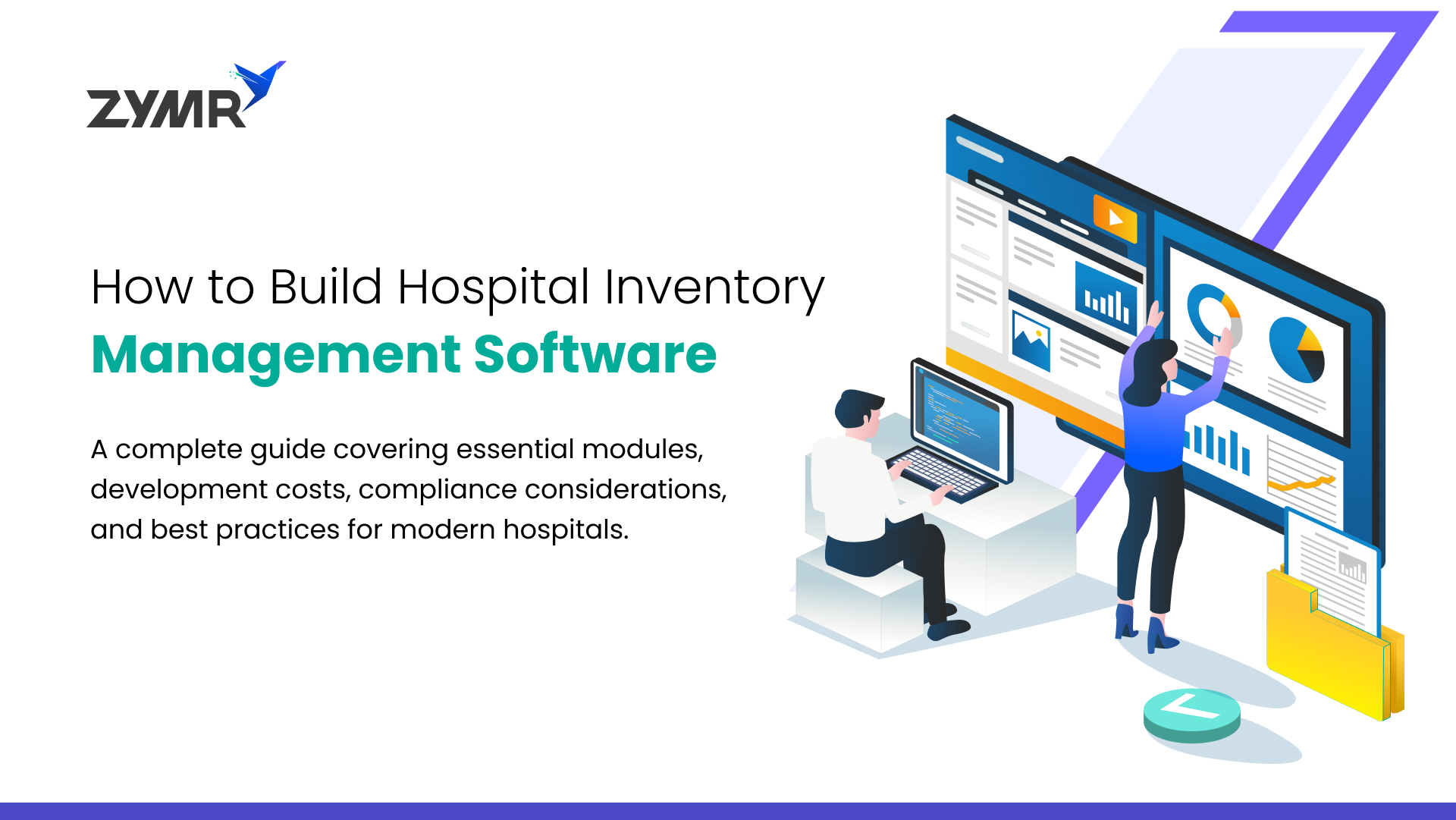How DevOps Services Accelerate Software Delivery

Nikunj Patel
Associate Director of Software Engineering
July 23, 2025
Businesses are constantly driven by the need to meet the growing demands of customers while also navigating fierce competition and rapid market changes. Whether you are releasing new applications or posting regular updates, launching your software to the market sooner can make all the difference. But how do businesses stay abreast of the emerging need without sacrificing stability or quality?
Presenting DevOps services - a blend of automation, process, and culture to accelerate software delivery.
DevOps helps businesses meet the increasing demand for faster and more reliable software releases by streamlining workflows, boosting communication, and automating procedures. It represents a significant change in the way software is designed, tested, released, and sustained. Let's dive deep into the role of DevOps in accelerating software delivery, explore its benefits, and understand why it’s become essential in modern digital initiatives.
What Are DevOps Services?
DevOps services help teams speed up software development and delivery by combining development and IT operations. This approach uses automation, continuous integration, and continuous delivery (CI/CD) to let teams build, test, and release software faster. It also improves collaboration and reduces delays in the software development process.
Traditional Software Delivery Challenges
Back in the day, before embracing DevOps consulting services, many businesses struggled with old, ineffective delivery models that introduced risk, slow time-to-market, and a few other typical pain points we are going to read next.
1. Lack of seamless, cross-functional collaboration within teams is typical of traditional software deliveries, which leads to misaligned priorities, handoff delays, and limited visibility into each other’s workflows.
2. Manual and error-prone deployments, such as script execution or file transfers, often result in missed steps and unpredictable results, which cause manufacturing problems and delay releases.
3. In legacy systems, release cycles might last for weeks or even months. Business requirements can have changed by the time software is put into production. Additionally, delays result in larger code batches, which complicate rollback plans and raise the likelihood of deployment failure.
4. With limited test automation in the early stages of deployment, bugs go unnoticed until late QA or production, which results in rework, delays, and increased expenses.
5. Lack of real-time Observability and Feedback in the legacy systems creates blind spots that impact customer experience and operational resilience.
6. Security is often treated as a last step in traditional models, which complicates delivery. Any issues that could have been fixed in the earlier stages of production are discovered late during the compliance checks and security reviews, which eventually delay the release.The absence of DevSevOps leaves the system vulnerable.
Both operational expenses and consumer satisfaction are directly impacted by such inefficiencies. It is understandable why so many businesses are looking to hire the best DevOps consulting services.
Why does DevOps Services matter?
There are several key benefits of DevOps for modern software development that have a direct impact on the quality and speed of software delivery:
1. Faster Time to Market
DevOps helps streamline the entire software development and release process swiftly through Continuous integration, delivery, and automated testing, thereby reducing the time it takes to release new updates or features into the market.
2. Improved Collaboration
DevOps encourages developers and operational teams to work together and share responsibilities, ensuring that all teams are working towards the same goals, without any miscommunication and friction within the teams.
3. Reduced Errors and Improved Quality
DevOps reduces the possibility of human error in development and deployment by using automation and continuous testing. Early detection of bugs and vulnerabilities raises the software's overall quality.
4. Increased Efficiency
DevOps gives teams more time to concentrate on creativity and problem-solving by automating monotonous and repetitive processes like testing and deployment. As a result, resources are used more effectively, and production rises.
5. Scalability
Businesses are able to scale their operations smoothly because of DevOps. The cloud-based infrastructure and automated pipelines allow enterprises to manage larger software updates and deployment volumes without sacrificing performance or putting additional stress on the workflow.
How DevOps Services Accelerate Software Delivery
DevOps services play a crucial and transformative role in accelerating the whole software delivery process, from conceptualization to implementation. By enabling real-time collaboration, automating monotonous and tedious tasks, and ensuring the flow of CI/CD pipelines, businesses can release high-quality software more quickly and frequently.
Here's how DevOps as a service accelerates delivery at every layer:
1. Automation of the Entire SDLC
Automation is one of the key fundamentals of the software development lifecycle. Since CI/CD are the bedrocks of DevOps, automating these pipelines ensures that changes are validated, tested, and deployed regularly, minimizing the delivery time from weeks to hours. DevOps tools also help in automating different development stages, which helps reduce any human errors. Additionally, it helps in managing manual bottlenecks to shorten the deployment cycle, saving a lot of time and effort. This is called the “shift-leg” method that reduces rework and eliminates downstream delays.
2. Faster Feedback Loops
As opposed to a traditional setup, cloud DevOps services deploy integrated toolchains and real-time monitoring that allows developers to give immediate feedback on code quality, performance issues, and deployment status. With this new mechanism, Developers can easily identify issues without waiting for QA cycles and production deployment windows, thereby driving faster fix rates with better quality outputs.
3. On-Demand Scalability and Infrastructure as Code (IaC)
Teams use technologies like Terraform or AWS CloudFormation to automatically configure, provision, and scale environments by utilising infrastructure as code. This allows developers to set up infrastructure and provide production-like environments in minutes without having to wait for days. The accelerated process helps in boosting speed and consistency.
4. Cross-Team Collaboration and Transparency
Breaking the traditional silos between the operations and the development team is one of the beautiful things about DevOps. The culture of shared ownership between testers, operations, and developers promotes collaboration and transparency across various departments involved in the software development lifecycle. This creates brand alignment that helps in getting the best results possible while sharing knowledge, insights, and feedback, while avoiding any misunderstandings or miscommunications.
5. Improved security and compliance:
While developing software, security and compliance are key considerations. To ensure that the applications are developed with security in mind right from the early stages, DevOps as a service incorporates strong security principles at the core of the development lifecycle. Through automated security testing and thorough monitoring, developers can identify errors and vulnerabilities, lowering the chances of security breaches. Additionally, DaaS providers ensure that applications meet all regulatory requirements and stay informed about updates in compliance standards. While DevOps streamlines development, DevSecOps provides an essential layer of security.
6. Reduced Costs and Resource Optimization
Businesses can save money by outsourcing DevOps since it eliminates the need to retain an in-house DevOps team and the necessary infrastructure. Advanced tools and technologies are made available by DaaS providers. Therefore, there is no need to spend money on any pricey gear and software licenses, and automation minimizes manual involvement, freeing up resources for key projects and innovation.
How Zymr Helps Enable Faster Software Delivery
Using end-to-end DevOps services and solutions, Zymr specializes in assisting companies in moving from legacy development methods to quick, robust, and scalable delivery pipelines. Being one of the top providers of DevOps consulting services in India and throughout the world, we can help speed up your digital transformation process by combining our strategic consulting, technical, and operational skills.
Get the full roadmap from our Beginner’s Guide to Getting Started with DevOps.
Below is the structural breakdown of how Zymr enables faster, high-quality software delivery:
1) DevOps consulting:
- SDLC Maturity Assessment: Before implementation, we conduct a thorough investigation to evaluate the maturity of the existing mechanisms of your current software development lifecycle (SDLC), toolchains, release speed, and team collaboration.
- Tailored DevOps Roadmapping: A DevOps roadmap is tailored that align with your business goals, compliance requirements, and tech stack.
2) DevOps Implementation services:
- DevSecOps: Zymr implements security checks like compliance policies, vulnerability scans, static code analysis, code scanning, and audit trails, directly integrated into the pipeline.
- Multi-Cloud Pipeline Enablement: Our team specializes in implementing multi-cloud pipelines across Azure, AWS, and GCP, following an automated rollback strategy.
- AI in DevOps: Beyond the traditional DevOps, we at Zymr integrate AI in DevOps to help businesses transition to proactive operations from a reactive one.
3) DevOps Automation Services:
- CI/CD Workflow: Zymr helps automate Continuous Integration/Continuous Delivery (CI/CD) pipelines
- Toolchain Integration: mechanize the processes of code integration, testing, and deployment using tools like Jenkins, GitLab, GitHub Actions, and CircleCI.
Want to explore tools and techniques that enable this automation? Check out our post on Mastering DevOps Automation.
4) DevOps managed services:
- Managed DevOps services: At Zymr, we provide end-to-end Managed DevOps Services to scale your software delivery and optimize cloud operations.
- Flexible engagement models: At Zymr, we also offer you flexible engagement models that range from small in-house consulting teams to full DevOps team outsourcing. This means that your company can be a SaaS startup or a Fortune 500 enterprise- you will have the right mix of tools, talent, and methodologies to scale your DevOps maturity.
Read this DevOps Outsourcing guide to check out why leading enterprises trust us to drive their digital transformation.
5) DevOps Tools and platforms:
- Orchestration with Kubernetes: Zymr enables modern cloud-native architecture with services.
- Docker for containerization: To implement scalable, portable apps on hybrid and multi-cloud infrastructures, zymr uses tools like Docker
- Monitoring and logging: We have the best-in-class monitoring tools like Datadog, Grafana, Prometheus, ELK Stack etc.) incorporated into the pipeline for real-time observability across your apps and services.
6) Specific DevOps Practices:
- Infrastructure as a code: Our team at Zymr helps you define, plan, and manage Infrastructure as a code (IaC) through tools like AWS CloudFormation, Terraform, and Ansible.
- Cloud enablement: Cloud services, you can make your cloud infrastructure frictionless and future-ready.
Conclusion
As the DevOps space continues to expand, keeping up with the current trends and handling the challenges shows how organizations maximize the benefits of DaaS. As a catalyst in accelerating software delivery, organizations are increasingly embracing DevOps as a Service for real success in the long term in the digital era. If you are looking to optimize release cycles, channelize innovation, or reinvent software development practices, Zymr can help you drive business success in competitive marketplaces.
Conclusion
FAQs
>
>
>
>
>
Have a specific concern bothering you?
Try our complimentary 2-week POV engagement
Our Latest Blogs

January 15, 2026
Global Healthcare Outlook 2026: Key Trends in Digital Health, AI, and Patient Safety

January 15, 2026
Top 10 Healthcare IT Services Companies Transforming Healthcare Delivery(2026)

January 15, 2026





.svg)
.svg)
.svg)
.svg)
.svg)
.svg)
